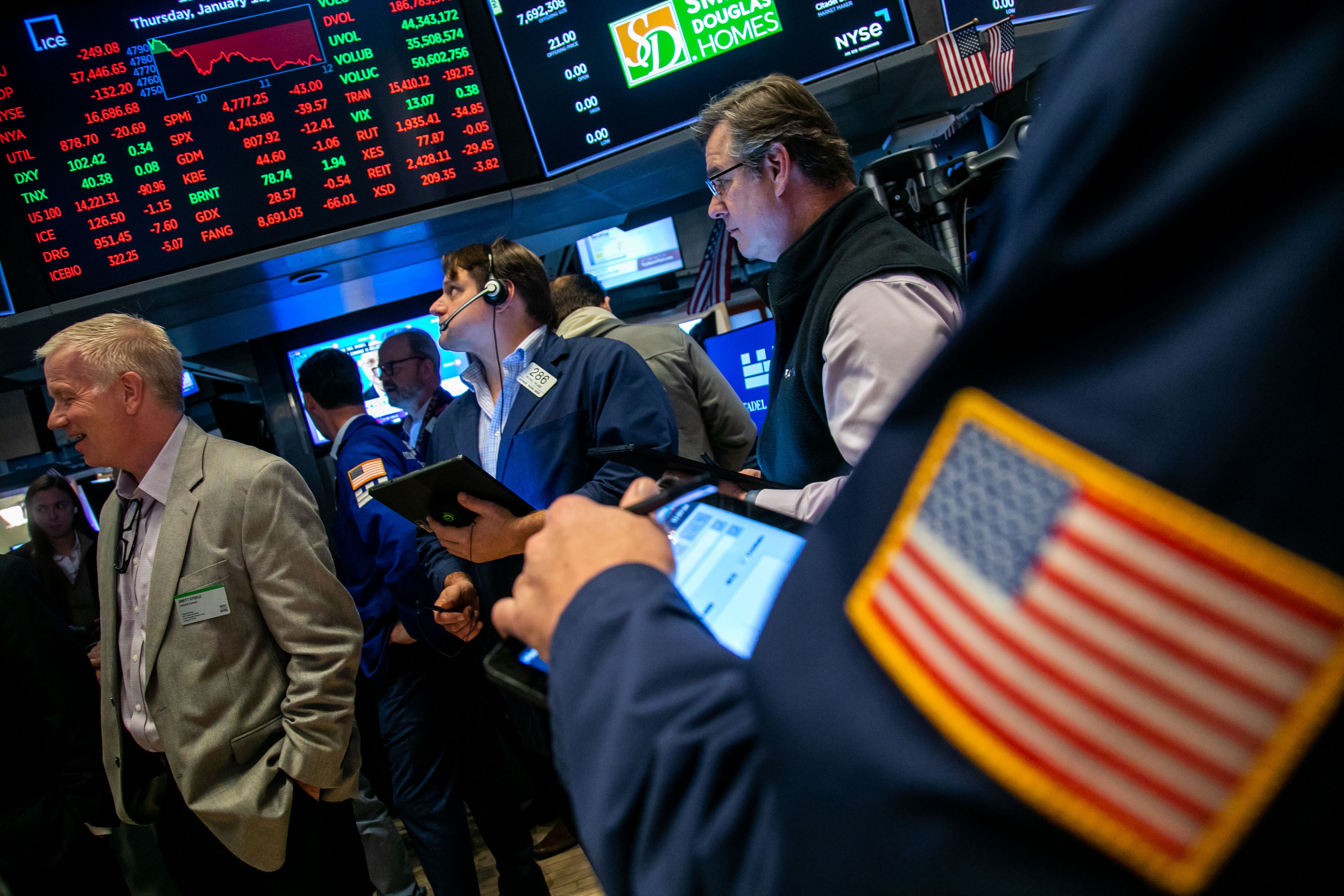A strong performance in financial markets, particularly an outsize gain for the stock market in 2021, helped entrench existing trends of wealth inequality during the pandemic, new data released this week show.
According to a report from the New York Federal Reserve Bank, the real net worth of white individuals outgrew that of Black and Hispanic individuals by 30 percentage points and 9 percentage points respectively, from the first quarter of 2019 through the second quarter of 2023.
The period featured a remarkable level of government financial support and, after the initial shock of the pandemic, a surprisingly strong job market. The unemployment rate for Black Americans in particular is now at 5.3%, near a record low, compared to an overall unemployment rate of 3.7%. Earnings for the typical Black full-time worker are up 7.1% since before the pandemic.
Closing the wealth gap is more difficult because a significantly larger number of white households traditionally have money in stocks and mutual funds. A separate Fed survey shows that as of 2022, about 65.6% of white households had investments in stocks, compared with 28.3% for Hispanic households and 39.2% for Black households.
“The study really shows the difference between making gains when it comes to income, and closing that gap, versus when it comes to wealth,” said Janelle Jones, Vice President of Policy and Advocacy at the Washington Center for Equitable Growth.
While government support such as increased unemployment benefits and stimulus checks helped stave off a COVID-induced recession, financial asset prices rose so significantly with the reopening of the economy through 2021 that racial wealth disparities increased. And while those market-linked assets did fall in 2022 when the Federal Reserve rapidly increased interest rates, “those declines did not fully offset the earlier rises,” according to the New York Fed.
“Much of the divergence in net worth by race and ethnicity since 2019 can be attributed to divergence in the real values of financial asset holdings,” wrote the report’s authors — including the fact that Black households have more wealth concentrated in pensions than in stocks, mutual funds and exchange-traded funds, or ETFs.
More than 50% of Black financial wealth is invested in pensions, the New York Fed found. Less than 20% of Black wealth is stored in private businesses, corporate equities, and mutual funds. In contrast, less than 30% of white financial wealth is invested in pensions, with about 50% invested in businesses, equities, and mutual funds.
“Black workers are still more likely to be unionized, which may play a part in the pension story,” said Jones. “But how folks are exposed to the ability to invest in the stock market — whether or not it’s something they grow up doing — we know that’s different for white families than for people of color.” Black family members are less likely to get an inheritance, she said.
During the pandemic, the real value of Black-held financial assets dropped in 2022 to below its 2019 level and continued to decline steadily, while the real value of Hispanic-held financial assets dipped below its 2019 level in 2022 and stagnated. Neither group’s real financial assets have recovered to their 2019 values.
Owning a business is another component of financial wealth, and separate data show Black-owned businesses had a tougher time during the pandemic.
While less than 10% of all U.S. business owners are Black, Black-owned businesses were also more concentrated in industries hardest hit when COVID first spread, according to Economic Policy Institute analysis of government data. In April of 2020, more than 40% of Black business owners reported they were not working, compared with only 17% of white business owners.
The industries with the largest total job losses early in the pandemic were also sectors where more Black-owned businesses are concentrated — accommodation, food services, retail, health care, and social assistance. About 28% of Black-owned businesses are found in these industries, compared with just under 20% of white-owned businesses, according to the Bureau of Labor Statistics.
Still, Treasury Deputy Secretary Walley Adeyemo said Wednesday that economic conditions are improving for Black households, citing rising employment and wages for Black Americans since before the pandemic, and an increase in Black business ownership and participation in the stock market.
Adeyemo suggested that some “policy prescriptions” might be needed to even out the distribution of financial wealth in the U.S.
“The gap between Black and white wealth in America is still too great,” he said.









